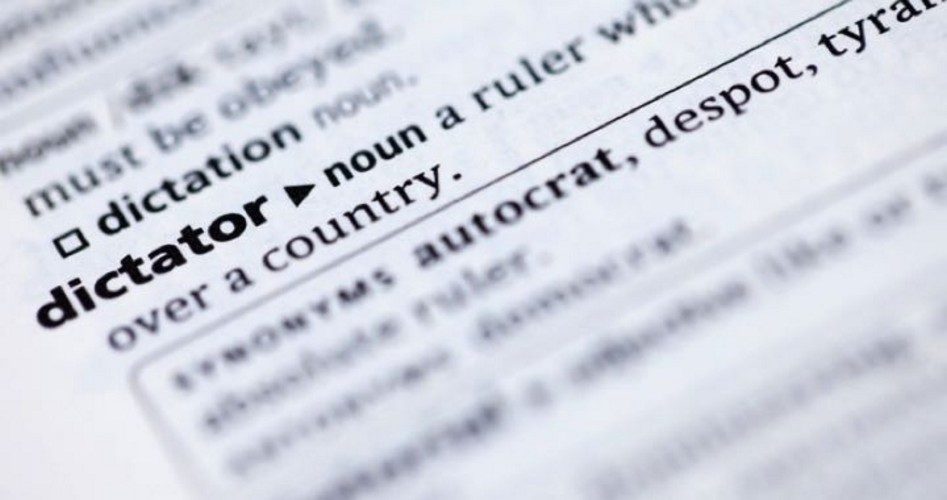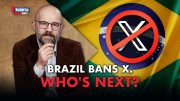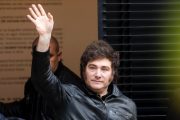
Venezuela’s dictator Nicolas Maduro has upped the ante. He ordered his Supreme Court to ask his Constituent Assembly to strip opposition leader Juan Guaido of his parliamentary immunity against arrest. On Tuesday the Constituent Assembly dutifully responded, voting unanimously to approve the court’s request, opening the door for Maduro to order the arrest of Guaido.
Guaido is being accused of violating a court order to remain in the country while Maduro’s attorney general is considering various charges against him. Instead Guaido left the country for a 10-day goodwill tour of neighboring South American countries to drum up more support for his efforts to unseat and replace Maduro.
Guaido is also being accused by Maduro of fomenting street violence and publicly challenging his authority as the duly elected president of Venezuela. Guaido says it’s all falsehood and pretense: Maduro was never duly elected; he packed the Supreme Court with his cronies; and the Constituent Assembly was illegally crafted to replace the National Assembly that had increasingly become a thorn in Maduro’s side as it rejected many of his totalitarian policies.
All Maduro needs to do now is arrest Guaido and make him disappear. With him gone Maduro is betting that the resistance to his regime will also disappear.
Maduro is backing his bet with agreements and assistance from Cuba and Russia (and by some reports, China). A hundred or so Russian military troops arrived in Venezuela late last month on a mission to train some of Maduro’s pilots how to fly the Russian-made helicopter gunships it is supplying. Reports that Chinese troops have already arrived for similar duty have not been confirmed. And Cuban troops have long insinuated themselves into the highest levels of Maduro’s administration and surveillance agencies to serve as guardians of Maduro’s administration. Some of Maduro’s personal bodyguards are Cubans.
Maduro is working to seize and keep the momentum that Guaido is threatening to take away. Guaido has called for public demonstrations to demand that electric power be turned back on, that the schools be reopened, and that businesses be allowed to operate full time. But with the failing power grid, Maduro is at a distinct disadvantage. Every time the power goes out, the natives get increasingly restless, and Guaido is there to encourage them. Maduro has every incentive to exercise the power his self-installed court and assembly has now given him to remove Guaido as the primary thorn in his side.
Guaido remains defiant and unfazed by the now very real threat of being arrested, incarcerated, tortured, and then “disappeared,” as is the custom in Venezuela. For instance Maduro is keeping a dozen American citizens behind bars despite Vice President Mike Pence’s demand for their “immediate release.” There are an estimated 39 foreign journalists that Maduro has arrested and put behind bars for anti-Maduro and anti-fatherland reporting and investigations. Upon learning of Maduro’s new empowerment granted by his political sycophants Guaido declared: “The people are determined and nothing is going to stop us. There is no turning back in this process.”
What Maduro appears to be banking on, as are Russia and Cuba, is that Trump’s implied threat of military intervention to remove Maduro by force — “all options are on the table” — is just a bluff, a chip in the big game, a negotiating tactic and not a real threat. They are counting on the U.S. president to back down, back away, and let Maduro continue to have his way with his hapless and defenseless citizens.
The risk is that Guaido’s arrest, conviction, and disappearance turns him into a hero, possibly a martyr, and a trigger not only for increased resistance by the Venezuelan populace to Maduro’s continued thuggery and oppression but for U.S. military intervention as well. The risk is that Trump remains true to his word and does ramp up, directly or indirectly, frontally or behind the scenes, sufficient military intervention to free the citizens of Venezuela from Maduro’s tyranny.
Either way, Maduro is upping the ante, and the risk, in Venezuela.
An Ivy League graduate and former investment advisor, Bob is a regular contributor to The New American, primarily on economics and politics. He can be reached at [email protected].
Photo: Contimis / iStock / Getty Images Plus
Related article:



